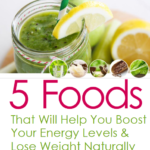Do you plan or consider what you’re going to eat for the day? Do you ever consider the role of functional foods? These are foods that have a beneficial nutritional role – whether it be to provide your body with essential nutrients, balance hormones or to help your liver with the detoxification process. Of course, if food doesn’t look or taste good then you’ll struggle to find me eating it – it’s best when all 3 are delivered.
Hummus is a creamy Middle Eastern dip that I’d class as a superfood with all it’s health benefits and I hope it will be a staple in your home after reading this.
Why eat hummus?
The classic hummus recipes contains 6 ingredients: chickpeas, olive oil, garlic, lemon juice, sea salt, and tahini.Hummus contains the following nutrients: Protein, Fiber, Healthy Fat, Carbs, Vitamins – A, C, Vitamin B6, Folate and Minerals – Iron, Zinc, Calcium, Phosphorus and Manganese
The benefits of each ingredient:
- Chickpeas are protein, fibre-rich legumes, a natural source of phytoestrogen, (which isn’t actually estrogen but does a good job of standing in for it) and a great choice if you’re looking to reduce your meat consumption. They’ll keep you feeling fuller for longer because of that combination of fiber and protein.
Many Mediterranean nations experience great health, low heart disease and greater longevity. This may be due to the high fibre content – like chickpeas. Studies show that having just one daily serving (about 3/4 cup cooked) of beans of any kind can help to decrease chances of a heart attack and to help balance “bad” LDL cholesterol.
Chickpeas have also been shown to have protective properties against cancer, while the fiber helps to keep waste moving out of the body quickly.

It helps to balance blood sugar levels and decreases the chance of developing diabetes or insulin resistance.
Diets rich in beans have been shown to help protect heart health partially due to their low score on the glycemic index. A high-fibre diet that includes legumes can help lower blood cholesterol levels, among other benefits, such as lowering heart disease risk, type 2 diabetes risk, and aiding in weight loss.
- Tahini or sesame seeds contain lignin’s another natural source of phytoestrogens, loaded with fibre, and they’re also a great source of minerals.Sesame seeds are considered one of the ultimate reproductive foods in Ayurveda.as they enhance egg and sperm quality and quantity.
- Olive oil is not cooked, and will therefore not be oxidised and hydrogenated. Olive oil has been found to reduce inflammation in your body. Regularly consuming olive oil has been correlated with improving blood pressure levels, glucose metabolism, and reducing harmful cholesterol.
- Raw garlic has a whole host of benefits including flavonoids, oligosaccharides, selenium, high levels of sulfur, and more. Garlic has been proven to help reduce your risk factors associated with heart disease, cancers and it acts as an anti-fungal, anti-oxidant, anti-inflammatory, and anti-viral.
- Lemon juice is alkalising and helps reduce acidity common in most modern diets, it also helps to increase your immunity, boost digestion, and to help keep blood sugar levels stable.
- Sea salt best from a good quality source i.e. Himalayan sea salt which contains 60 trace minerals that have numerous health benefits:
Hummus is an anti-inflammatory food:
- Extracts from garlic have been shown to reduce inflammation and help fight wrinkles and aging.
- Chick Peas reduce inflammation, blood clots and inflammation markers.
- Olive oil and sesame seeds reduce inflammation and provide important antioxidants, both which play a part in maintaining heart health by keeping the structure of arteries and cell walls healthy.The role of inflamm- ageing in a previous post you can read it here.
Recipe
Go here
If you don’t want to miss any future newsletters or blogs please sign up here and you’ll also get a free guide
5 Foods that will boost Your Energy Levels and Help You Lose Weight Naturally.
